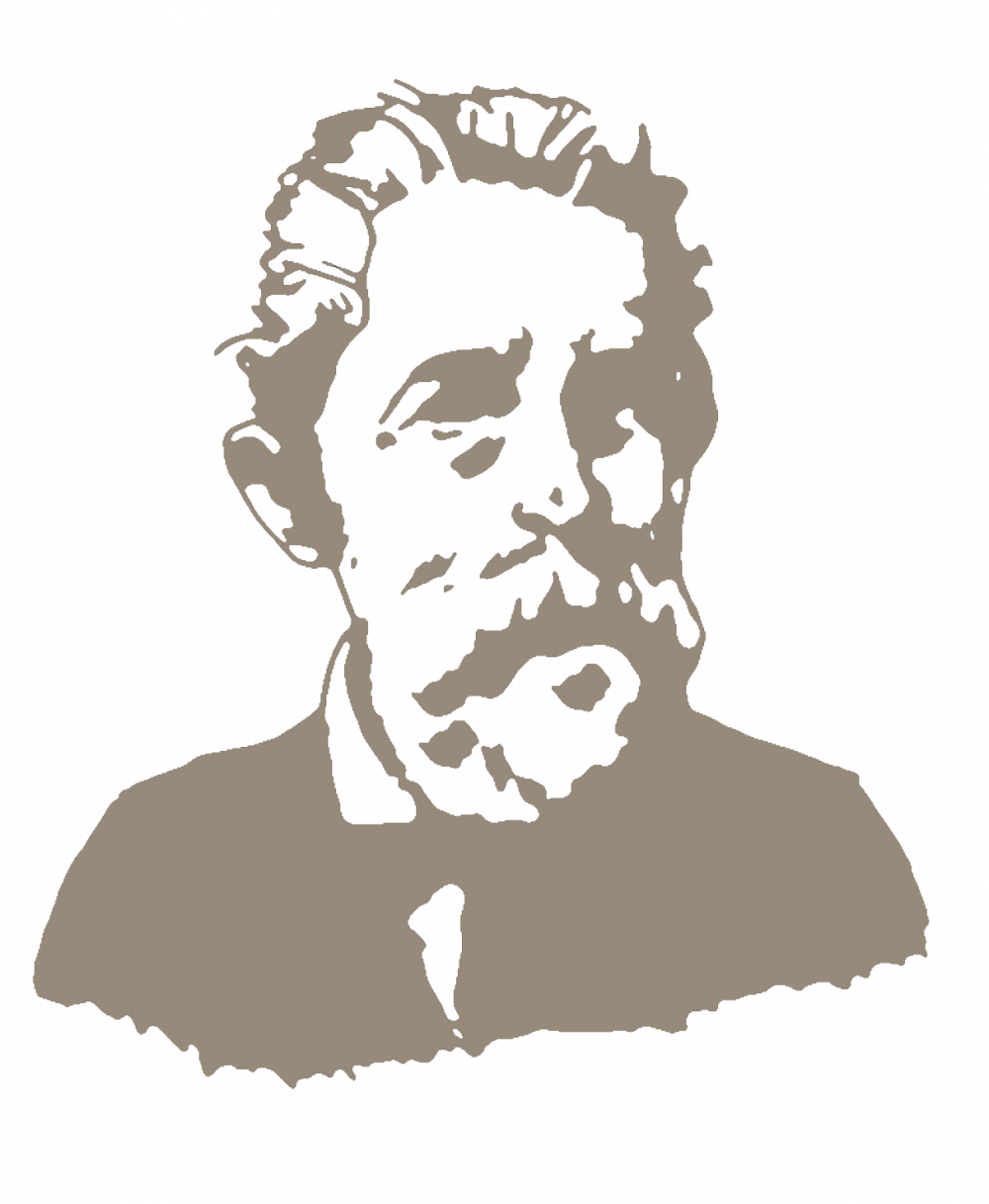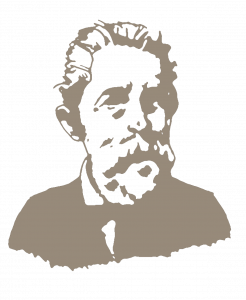The testimony of the economist Giuseppe Toniolo, defender of the primacy of the ethical in human action and one of the promoters of social Catholicism.Last April 29th, the servant of God Giuseppe Toniolo (1845-1918) was beatified in the basilica of San Pablo Extramuros in Rome, notifying us that we are celebrating and that we celebrate the opportunity to record a great oblivion of Catholicism and history of social and economic thinking.
Born in Treviso, this sociologist-economist, apóstol of social Catholicism, of Christian Democracy and of Italian Catholic Action, father of six children, professor of Political Economics at the University of Pisa for more than 40 years, was the initiator of a scientific current which in the field of social sciences was continued, among others, by the Italians Luigi Sturzo, Amintore Fanfani and Francesco Vito and by the Argentine economist Francisco Valsecchi, director of the Acción Católica Argentina, founding dean of the Escuela Superior de Economía and the former Faculty of Social Sciences and Economics of the Universidad Católica Argentina.
Militant Catholic, I would like to see reflected in my thoughts in the encyclical rerum Novarum (1891) and you had an active participation in the catholic, social and political movements of Italy at the time. Friend of Don Bosco, he was an incalculable promoter of the celebration of the Social Weeks, of the Work of the Congresses - an organization that from 1874 to 1910 marked the direct lines of thought and the political-social action of the Italian Catholics, giving rise to the Christian Democracy –, of the foundation of the Universidad Católica de Milán, of the Unión Católica para los Estudios Sociales (1889) and of the Revista Internacional de Ciencias Sociales y Disciplinas Auxiliares (1893), the body from which published an important number of articles a favor of the dominion descanso, the limit of working hours, the defense of small property and the protection of the work of women and young people, work that is carried out by the numerous economic and social writers among those who are interested : Today's sociological problem, Christian Democracy, History of Social Economy in Tuscany and Treatise on Social Economy.
Contemporary to the period of transition that marked the transformation of ancient European institutions and forms of life produced by the rise of industrial capitalism of the liberal court, Toniolo was the protagonist of the emergence of ideas, doctrines and theories that were previously unknown and which sought to explain and solve the “cuestion obrera”. Situated thus in an era in which class conflicts were receding and social and economic studies and debates were increasing, he would dedicate several years of his life to the conformity and explicitation of a scientific system opposed to the prevailing liberal school, a situation which he will be the “master and leader of the Christian Social Ethical School established in Italy as a scientific reaction to economic individualism”1.
Treatise on Social Economy
Situated in a critical position to the reduccionist positivism of his time, Toniolo's main contribution to the scientific level was the emergence of an interdisciplinary system with different levels of connections between the distinct positive social sciences integrated with the speculative social sciences. Deductive/inductive system designed starting from the empirical confirmation of the existence of a “law of proportion” or of “interchange of influences” between the economic-social progress – material concerns – and the moral-civil of a society – inmaterial concerns – and who presented it in his work Treatise on Social Economy, This first volume was published in 1907.
Concerned not only with the social and economic reality of the era but also with the state of his society, Toniolo also took up the movements of scientific reaction by indicating which criteria should be used and which norms the Economy should be guided by - on double aspect: science and reality – to achieve maximum individual and social well-being. Based on the “law of proportion” – which implied the existence of a dynamic correlation between the objects of human activity, material and moral – he presented it in this way Treaty the foundations of a thought that resulted, as one understands, opposite to what was proclaimed the main trend - neoclassicism - and that from the beginning indicated that it is not the Economy but Ethics the science that signals it to the man and the society that the end of “civilization” is not the average – but the common happiness, the good common. Because economic-civil progress consists in the achievement of a series of balances that lead to the maximum possible amount of intangible – fine – goods with the minimum proportional amount of – average – economic goods. In this line, discomfort or social crises should be considered as the result of a combination of imbalances due to the disproportion that exists between spiritual and economic well-being, that is, between means and ends. In his vision, economic progress must therefore reflect on the way or degree in which the economy contributes to common happiness. Only in this way, he stated, “Economy must be a doctrine for enrichment – cremation – or an art for markets and banks”2
Economics training
One of the main questions that Toniolo taught was that the Economy does not investigate more than an “aspect of social living”, which means that although it studies questions related to society, it is not separated from other activities of the social body. For what reason one of its laws can be feared without keeping in mind the solidarity that exists among the different actions of collective life. And if the Economy is "the science of medium useful things", its use or capacity to achieve certain results cannot be considered without the knowledge of human fines which, as has been pointed out, are not indicated by positive social sciences up to the speculative social sciences. In this way, the main aim for an economy oriented towards the common good consists in “more and more theories than the guide of philosophical and social sciences”.
Based on these principles, Toniolo designed the foundations of an inductive/deductive system of political economy aimed at social progress not only in material but also ethical-moral terms. In this sense, he noted that the answer is not only a direct medium to cover the goals of existence but also an indirect medium to promote individual and social virtues. Compared to the first ones, he stated: “The posture of ensuring physical existence is a condition for the people to move peacefully towards the culture of the spirit”. With respect to the civil order, he indicated that the position of material goods permits not only economic independence but also independence of one's opinions, actions and conscience. He said: “The times of decadence in which the reward is concentrated or degraded in a few hands are characterized by habits of servile flattery”.
At the political level, the question of all social classes is the condition and measure of participation in sovereignty that "whence there is only one among the multitude of miserables, there is no despotism". Due to the fact that only a regime of ordered freedom ensures greater participation and diffusion of economic well-being, the mere existence of suffrage does not ensure democratic life and which does not correspond to a gradual increase in the material conditions of the multitudes, it only leads to the conflict: “Whence the multitudes of poor and sinful people weigh upon the balance of the government, it is oscillating and is inclined to convulsions in which those who have nothing to lose. Where an order of freedom is best guaranteed is where all forms and classes of science are duly balanced”.
This was, according to him, the speculative and practical importance of the Economy, which should be considered in a prudential manner and that economic science is "not the only or supreme doctrine in the field of social sciences, not to be given so much explanation to everyone" the problems of society. It is now universally recognized that the same problems of law enforcement can only be understood and elevated to ethical, legal, political, religious, etc. causes, which are within the scope of our expertise”.
In Argentina
As was noted at the beginning, Toniolo's thought was an important project in Argentina under the guidance of Francisco Valsecchi (1907-1992), an economist who, after a small number of lay people and priests, instituted the thought of this man in our country. on master. According to Ludovico Videla – alumnus of Valsecchi and former dean of the Faculty of Social and Economic Sciences of the UCA –, “Valsecchi always wants to create in Argentina an economic school of catholic orientation that aspires to the epistemological perspective that Toniolo promoted. Some of his disciples were enthusiastic about his proposal and we worked a lot on this experience, albeit with a relative success. One of the problems that confronts the perspective of Toniolo and Valsecchi is that they must dialogue with a science, the Economy, dominated by the Neoclassical Positivist School which requires the investigation into the philosophical and ethical principles of economic action. But in the Catholic theological field dialogue is not easy. The social doctrine, which is moral theology, is understood as a cultural addition to an autonomous science and not as an integrated moral, social and economic order. In this way, certain theologies such as “liberation” adopt the Marxist School for its economic proposals without considering the anti-humanism essential to dialectical materialism. For these problems, I consider that the Valsecchi-Toniolo project is unfinished in Argentina. Nonetheless, the wisdom of this current story is appreciated in the notable actuality of Valsechi's epistemological conception proposed in the classic text above What is the Economy?
- Valsecchi, Francisco (1945) “Recordación de José Toniolo en el centenario de su nacimiento”, en: Boletín Oficial de la Acción Católica Argentina, Buenos Aires, November de 1945, pp. 217-221.
- Toniolo, José, “Tratado de Economía Social”, S. Calleja, Madrid, 1922.
The author is licensed in Economics by the Universidad Católica Argentina, adjunta professor in the Faculty of Economic Sciences and doctoral candidate in Sociology at the same university.



